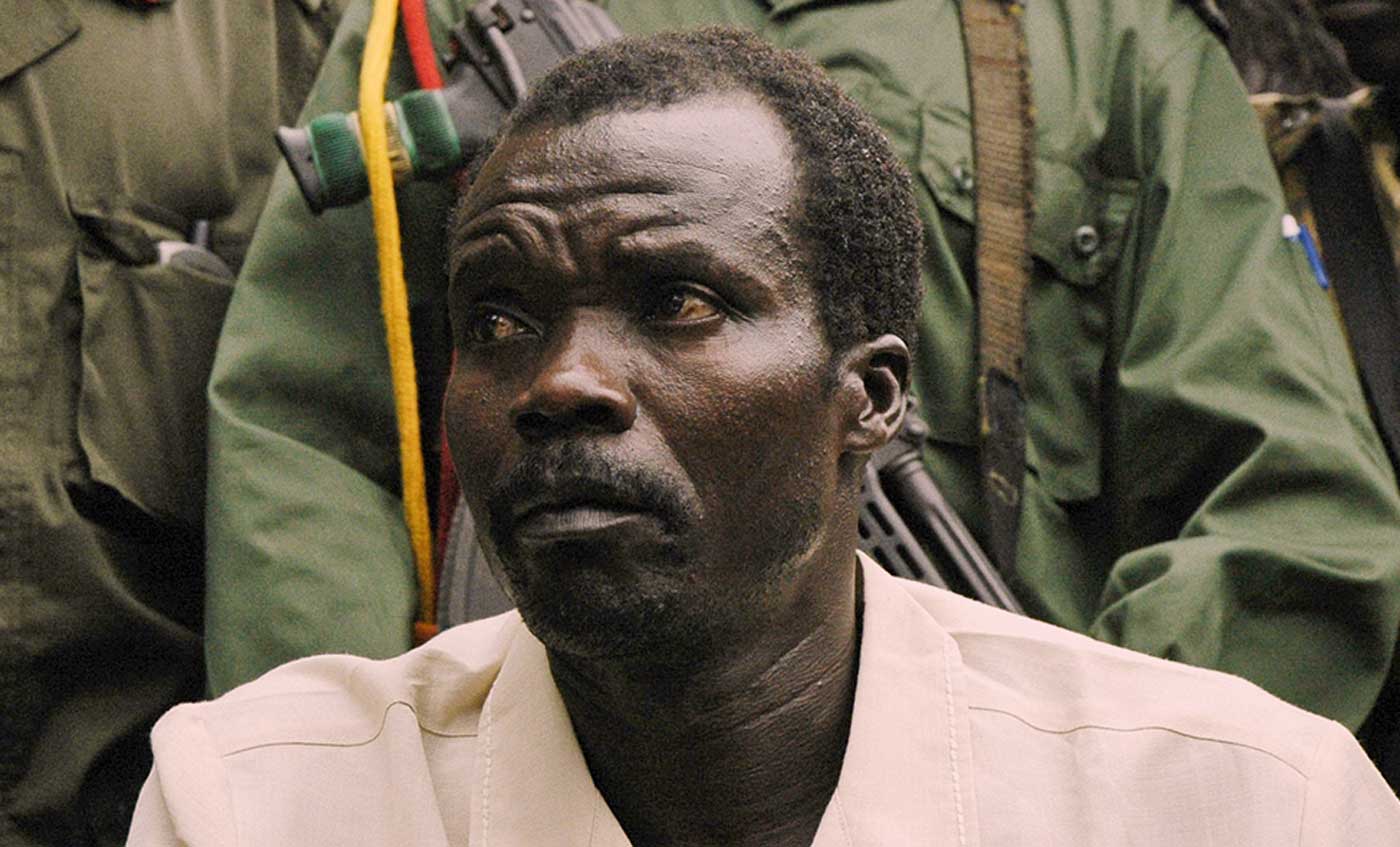For the last 10 years, Joseph Kony has not been an easy man to find. He has crisscrossed thousands of miles of central African wilderness on foot, managing to elude persistent military pursuit and an indictment issued by the International Criminal Court.
That is why, in light of the recent LRA Crisis Tracker report placing Kony in the Sudanese-controlled enclave of Kafia Kingi, it is crucial to consider the scale of the opportunity currently facing us. In a joint Op-Ed for The World Post, Luis Moreno Ocampo, former Chief Prosecutor for the International Criminal Court, and Ben Keesey, CEO of Invisible Children, remind us that apathy is unacceptable; we must act decisively to bring Kony’s war to a close.

+ +
No Excuses: Ending Kony’s Impunity
In October 2005, the International Criminal Court released its first ever arrest warrants for war crimes and crimes against humanity, indicting Joseph Kony and four other commanders in the Ugandan rebel group, the Lord’s Resistance Army (LRA). Nine years later, Kony is still at large and the LRA is still perpetrating violence against civilians. In one recent raid in a small village in northern Democratic Republic of Congo, LRA fighters methodically advanced from home to home, looting food, kidnapping seven civilians, and shooting a man who dared to brandish a spear in defense of his wife.
Kony’s fighters have been committing such attacks — and even more brutal atrocities — in the region since the late 1980s, making the LRA one of Africa’s most enduring insurgencies. Compared to transcontinental Ebola outbreaks and videotaped executions by ISIS terrorists — crises that reflect our globalized and digital world — it’s no surprise that media outlets rarely register LRA violence against remote communities that lack mobile phone service, much less an Internet connection. Still, the international community has no excuses to justify allowing Kony to remain at large, forcing entire communities to live with the constant and paralyzing fear that their children will be abducted, and either killed or transformed into killers.
If Kony had his way, the world would forget he ever existed. But instead, we should take a lesson from 2005, when the international community finally began to take Kony and his LRA rebellion seriously. Just as the ICC released its arrest warrant for Kony, U.S.-based nonprofit Invisible Children began using documentary films to mobilize young people in the United States to advocate for the protection of fellow young people half a world away, facing the daily risk of being abducted or killed by LRA fighters. Year after year, dedicated high school and college-aged activists spread the word about Kony’s atrocities not only through social media channels, but also face-to-face at thousands of high school and university campuses. These young people — most of whom had no previous engagement with human rights activism — were largely responsible for the passage of landmark legislation in 2010 that required President Obama to develop the first-ever comprehensive strategy from the U.S. government to address the LRA crisis.
President Obama embraced this new mandate from Congress and millions of young Americans, boldly sending 100 U.S. Special Forces to reinforce African Union troops pursuing Kony and expanding the State Department’s “rewards for justice” program to help collect information about the whereabouts of Kony and his deputies. These efforts and others from the U.S. government have severely disrupted Kony’s ability to wage war against communities in central Africa. In particular, campaigns to encourage peaceful defections, along with AU-led military operations, have reduced the LRA to one-fourth of its fighting capacity in 2005, and allowed hundreds of abducted young people to escape and return home.
Unfortunately, the LRA still remains a daily threat to hundreds of thousands of people in Congo and Central African Republic, adding each month to the number of children it has abducted and forced into servitude over the past two decades. This year, with less international pressure, Kony’s fighters have quietly stepped up attacks. The group has already abducted more people so far in 2014 than it did in all of last year.
Recent LRA defectors also testify that the group is compiling ivory, and possibly gold and diamonds. Some of these illicit goods are allegedly trafficked through disputed territory controlled by Kony’s on-again, off-again patron, the Sudanese military. Kony himself has frequently made his camp there in recent years.
It is time to shine a spotlight on Kony once again. If we don’t, the world will likely miss the best window of opportunity it has ever had to finally end decades of Kony’s violence and impunity. At present, most LRA fighters remain with the group more out fear than anything else. An expansion of “come home” information campaigns could spark a snowball effect in defections and weaken the LRA from within. Long-range aircraft and better intelligence collection could help military forces pinpoint and apprehend Kony and his fellow commanders. Most importantly, modest investments in local civil society groups in the region could help war-affected communities recover and reintegrate those who have escaped from LRA captivity.
The 10th anniversary of the ICC’s indictment of Joseph Kony should be a celebration of his arrest. Should another year pass with Kony roaming free, it will be an indictment on the international community for our collective failure to bring him to justice. There are no excuses.
+ +
Think people should hear about this?